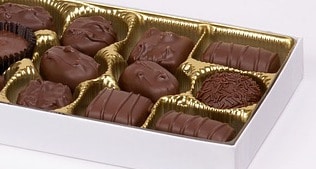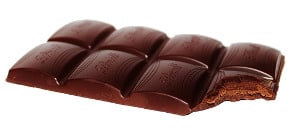What is a noun?
Look around you. Everything you see is a noun! (desk, computer, phone, car). Nouns are therefore objects and things. But they can also be non-physical things like ideas.
A noun is a word that names:
Things – Examples: table, chair, water.
People – Examples: Mark, Jane, pilot, driver.
Animals – Examples: dog, cat.
Places – Examples: London, kitchen, country.
Concepts, ideas or feelings – Examples: love, hate, jealousy, information.
2 types of noun – Countable and uncountable
In English grammar, we divide nouns into 2 categories or types:
1) Countable nouns
2) Uncountable nouns
Why do we divide nouns into these 2 groups? Why is it important to know if a noun is countable or uncountable? It is important because English grammar rules are different for countable and uncountable nouns. You must understand and learn the difference.
Let’s look at each type in more detail:
Countable nouns
A countable noun is a separate object. It is a separate unit. We can clearly count the number of units of a countable noun. An example is “apple”.
A countable noun has a singular form (when there is one unit). Example: I have one apple.

It also has a plural form (where there is more than 1 unit) For regular nouns, we usually form the plural by adding “s” – Example: I have two apples.

We can count countable nouns because it is clear to see they are separate units.
In the singular form, we can use the indefinite article (“a” / “an”). Example: I am eating an apple.
Examples of countable nouns: cat, lemon, desk, bus, bowl, sandwich, radio and many more.
Uncountable nouns
An uncountable noun is not a separate object or unit. We cannot count uncountable nouns. It is a large solid mass or liquid without clear boundaries. An example is “water” We cannot count water. We do NOT say “I have 3 waters” – It does not make sense. Water is a liquid and is just one big amount all together.
Uncountable nouns only have a singular form. Example: I have some water. ![]()
There is no plural form for uncountable nouns. I have some waters. ![]()
We cannot use the indefinite article (“a” / “an”) Example: I have a water. ![]()
Uncountable nouns are therefore names of materials, gases, liquids, concepts, collections, mass objects without boundaries.
Examples: sugar, butter, oxygen, rice, pasta, salt, bread, milk, water
Example sentences:
The pasta is very nice. ![]()
(Notice that “pasta” is in the singular form. The verb “is” (third person singular of the verb “be”) is also the singular form to agree with the subject.
The pastas are very nice. ![]()
(This is wrong because pasta does not have a plural form!)
Can I have some pasta? ![]()
He served me some pasta. ![]()
(pasta is singular)
More examples of uncountable nouns:
advice, air, alcohol, blood, butter, cheese, coffee, education, flour, food, furniture, grass, ice, information, luggage, meat, milk, money, music, news, oxygen, paper, pepper, rain, rice, salt, sand, snow, sugar, toothpaste, wine, wood and many more.
As you can see, “advice”, “information” and “news” are all uncountable in English. This often confuses ESL students because, in many other languages, these words are countable. Example, in French we say “des informations” and “un conseil” But in English, they are considered uncountable and do NOT have a plural form. “news” has a letter “s” on the end, but it is in fact singular.
Here are some examples showing the correct and incorrect versions:
He gave me some good advice. ![]()
He gave me some good advices. ![]()
Can I have some information? ![]()
Can I have an information? ![]()
The news is good ![]()
The news are good. ![]()
Some nouns are both countable and uncountable.
Some nouns can be considered as either countable or uncountable. It depends on the situation and context.
Example with the noun “chocolate”
Situation 1 – Imagine a box of chocolates.

There are lots of separate chocolates inside the box. They are individual entities. I can count them. “chocolate” in this context is countable.
We say:
“Do you want a chocolate?”
“I ate three chocolates. They were delicious.”
Situation 2 – A bar of chocolate.

It is a mass of chocolate. Not separate. We cannot count this. “chocolate” in this context is uncountable.
We say:
“Do you want some chocolate?”
“I ate some chocolate.”
Using a countable unit with an uncountable noun
Sometimes, we can use a “countable unit” with an uncountable noun. It is a way of sort of dividing up the uncountable noun. We can then put the countable unit in its plural form to express an amount of the uncountable noun.
Example: “water”
Water is an uncountable noun because it is a liquid. We cannot count water. We say: “Do you want some water?
But, we can use a “countable unit” – Example: “glass”
Now we can say “Do you want a glass of water?”

Please understand that “water” is still an uncountable noun. That has not changed. But we are able to use the countable units (glass, jug, litre) to express a quantity of that water.
Other examples of this:
bowl of rice
slice of bread
piece of cheese
More lessons
Plural forms of English nouns
SOME and ANY (determiners)
MUCH and MANY (determiners)
Idioms about colours
Vocabulary: BESIDES, EXCEPT and APART FROM
Video lesson
Watch this lesson for more examples and to hear the correct pronunciation and accent. There are over 150 video lessons on my YouTube channel so don’t forget to subscribe to my channel. 🙂


Anna Francesca V. Sorbito says
I will study this on saturday
kalinkan says
you can study this on any time who cares it….
Jarrad Harries says
Oops. “Water” is both countable and uncountable:
“The waters of different oceans vary greatly in average salinity.”
In fact, the majority of the examples in your list of uncountable nouns can be both, albeit to a greater or lesser degree. Alcohol, cheese, meat, pepper… most so-called “uncountable nouns” can act as either!
Shambhavi says
Yes.
Aditya says
Trees in forest are countable
Shambhavi says
No trees in the forests are not countable .
Shambhavi says
Yes trees in forest are countable.
Lance Vance says
What about countable and uncountable nouns used together in a sentence? E.g., “English movies and TV [is/are] usually subtitled in Norway”.
I realize you can avoid the issue by using “TV shows” instead of just “TV”, but that doesn’t solve the issue.
Grammar Sage says
Two nouns joined by ‘and’ always take a plural verb.
Hence,
English movies and TV are usually subtitled in Norway.
klinkan says
okkk,is good but need to be more concept. And having some more live examples
Khushi says
Wow
M.Ganesh Adithya says
Hello sir /mam, Uncountable noun is always a singular form. But sometimes we say for example: Ana carries 2 pencils. Here pencils is plural form. Pencil is material noun how can a material noun be in plural form.
Please clarify my doubt.
Peter precious says
Wow,I love your teaching it amazing now I understand on how to differentiate uncountable band countable noun
Peter precious says
I enjoyed your teaching